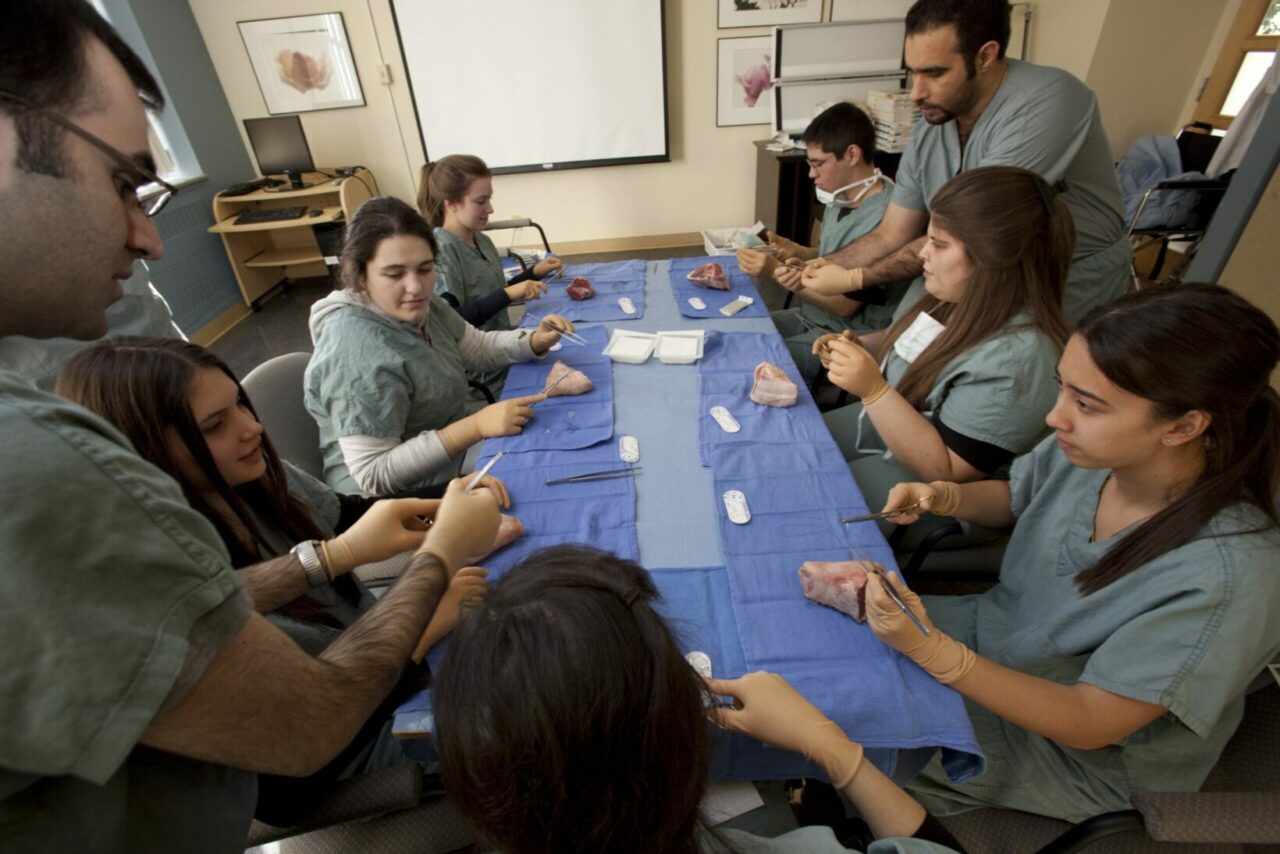
More than 200 students from 26 high schools and CEGEPS across Montreal got a taste of what it’s really like to be a scientist at TD Discovery Day in Health Sciences on Tuesday, December 6, 2011.
Organized by The Canadian Medical Hall of Fame and hosted by the Montreal Neurological Institute and Hospital (The Neuro), the McGill Faculty of Medicine, and the McGill University Health Centre (MUHC), this one-day event featured a keynote lecture, interactive workshops held in research labs and hospital settings, and a career panel discussion.
“Discovery Day exposes students to a vast array of career options in the health sciences, including possibilities they may never knew existed,” said Janet Tufts, Executive Director of The Canadian Medical Hall of Fame (CMHF), who has attended more that 50 Discovery Days across Canada since 2006. “Over and over, we see life-altering decisions made at Discovery Days as students interact with and are inspired by health professionals who are passionate about their work.”
The day kicked off at The Neuro with the dynamic keynote address “Me, and how I got to be here” by Dr. Phil Gold, 2010 Hall of Fame Laureate, Douglas G. Cameron Professor of Medicine, Professor of Physiology and Oncology, McGill University, and Executive Director Clinical Research Centre, McGill University Health Centre.
“Discovery Day is a terrific opportunity for students to explore the world of health science,” says Dr. Phil Barker, Interim Director of The Neuro. “We’re proud to showcase the innovative research and clinical care at The Neuro, and to partner with the CMHF in inspiring the next generation of leaders that will advance science and medicine.”
“Stimulating the curiosity of our youth is an important aspect of the Faculty of Medicine’s teaching mission. Discovery Day gives young Quebecers the chance to meet with leading physicians, allied health professionals and researchers from the Faculty and hospital community, in their work settings, to learn first-hand what a career in the health sciences is about,” said Dr. Benaroya, Interim Vice Principal (Health Affairs) and Interim Dean, Faculty of Medicine, McGill University.
“Innovation and education are two of the founding principles of an academic health centre like the McGill University Health Centre,” said Mr. Normand Rinfret, Interm Director General and CEO of the MUHC. “We are very proud to participate in Discovery Day, and have the wonderful opportunity to connect with and inspire the next generation of healthcare professionals.”
Following the keynote lecture, students dispersed across campus to attend two hands-on workshops, choosing from a total of 15 including the following:
- The Human Spine – Why does it hurt, and do we have the magic to cure? where students will use real surgical instruments and artificial bones to stabilize the spine, and also perform biomechanical testing to study the suitability of new implants
- Microcontact Printing – a way to guide cells through space and detect diseases giving students the opportunity to try out the microcontact printing technique to design cool patterns of fluorescent antibody the size of fingerprints and learn about some of the technique’s applications such as stem cell differentiation, guidance of neurons and detection of antigens to screen for cancer or other diseases
- Why are these students getting sick? Public health and disease outbreak tracking where students will take on the role of disease detectives to investigate “outbreak” in the group and learn to identify clues and formulate hypotheses about the relationship between risk factors and disease
The day wrapped up with a lively career panel discussion “Health Pros Tell All” giving students the opportunity to ask a variety of health professionals about their work, how they got to where they are today and what drives them to continue.
The Canadian Medical Hall of Fame offers Discovery Days at eleven universities across the country, involving over 2,200 students every year.
McGill Reporter
